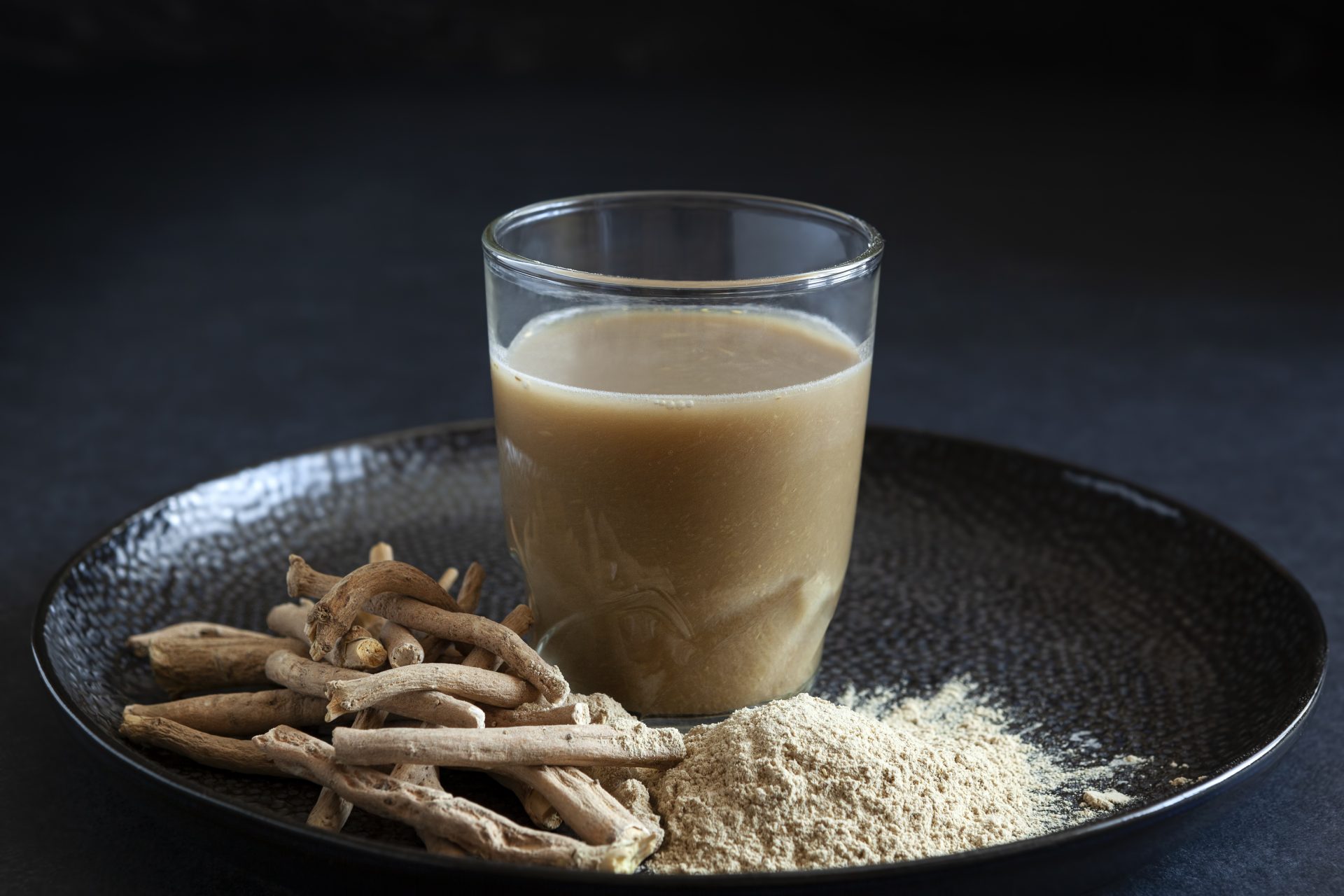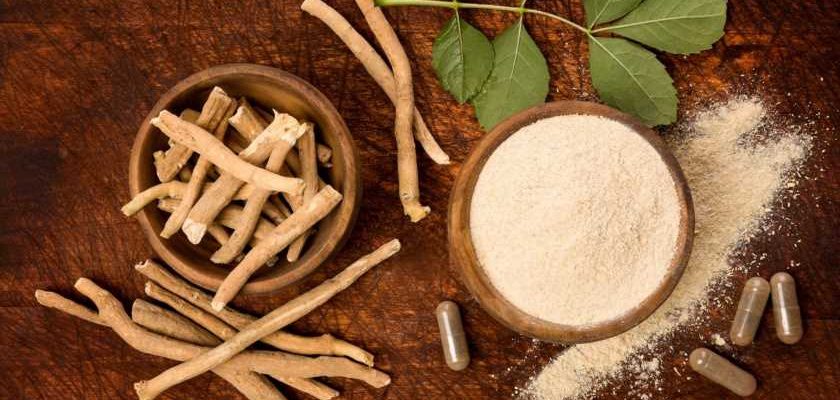Revered in Ayurveda, the ashwagandha plant is thought to have a range of benefits, from stress relief to strength training. But what is it, and how can we use it?
If you’ve been struggling with stress, anxiety, period pains or conditions like PCOS, then you may have come across recommendations for ashwagandha. The root is all over social media right now, and has been a main-stay of alternative healing circles for a few years.
But given the noise around the plant right now, you might be wondering just how much evidence there is to support some of the claims being made about its potency. To separate fact from fiction, we’ve roped in a bunch of experts to explain exactly what ashwagandha is and whether it’sa supplement worth investing in.
“Ashwagandha (also known as withania somnifera or Indian ginseng) is an Ayurvedic herb,” explains nutritionist Samantha Gold. “The ashwagandha plant is a small shrub with yellow flowers that’s native to India and Southeast Asia, and it is often the root that is used in supplements.”
What are its benefits?
“Ashwagandha is revered in Ayurveda as one of the ‘rasayana’ or rejuvenation herbs,” explains Ayurveda coach Claire Paphitis. “It is an adaptogenic herb, meaning it is used to help the body resist physiological and psychological stress by adapting to the needs of the individual.”
The herb is thought to benefit a number of conditions, but its most common use is in the relief of stress and anxiety.
“I’ve heard a bit about ashwagandha, and it does sound interesting,” agrees Dr Zoe Watson, a GP and founder of wellbeing platform Wellgood Wellbeing. “There are actually quite a few clinical trials out there looking at various benefits of the herb, which seem to have had positive results, and there don’t seem to be any major side effects associated with it.”
However, as with all complementary therapies, it’s wise to exercise caution. It’s important to note that, so far, the trials have been relatively small. “The limitations of the trials are mainly that the study sample size has been very small – usually between 30-80 people per study,” explains Watson. “I’m not sure the sample size is big enough to justify saying that it has a proven benefit.I think ultimately it comes down to personal preference – I’d say as long as it isn’t going to interact with any medications a person is already on, then there’s no harm in giving it a go.”
While we’re certainly not saying it should be used as a first line of treatment for a serious health condition, the potential benefits are worth exploring. Dr Watson agrees: “I encourage patients to do what feels right for them – so long as it’s safe.”
So with that in mind, let’s take a look.
You may also like
An introduction to Ayurveda: how an ancient healing practice can enhance our modern lives
It could help ease anxiety and stress levels
“Ashwagandha is often used to rejuvenate and energise the nervous system,” explains Gold. “It has been found to be safe and effective for managing certain health conditions, including stress, anxiety and insomnia, and it is often used to treat stress-related disorders and stress-related depletion of vitamin C and cortisol.”
“Ashwagandha has been a staple in Ayuverdic medicine for thousands of years because of its numerous and impressive benefits,” agrees co-founder of Indi Supplements, Helen Snook.
Small studies have shown that it could potentially help with lowering levels of the stress hormone cortisol in the blood, thereby having a calming effect.

It’s said to be a powerful anti-inflammatory
It’s well-known that inflammation is generally not great for our physical health, with inflammatory diseases being the most substantial causes of death in the world.
But this powerful little plant could help, as studies show that its anti-inflammatory effects may have been effective for sufferers of both rheumatoid arthritis and osteoarthritis.
It might enhance physical performance
Ashwagandha could be a great addition to your diet if you enjoy working out. Alongside a healthy balanced diet, this mighty herb has been associated with improvements in both physical endurance and muscle strength and recovery.
“The herb may enhance physical performance in both men and women,” says Gold. “Reviews show benefits to strength and oxygen use during exercise, along with gains in endurance.”
You may also like
Anti-inflammatory foods: best foods to fight inflammation and why it's so important
It can help with sleep
The leaves of the ashwagandha plant contain the sleep-inducing compound triethylene glycol, which is thought by some to improve sleep quality and improve symptoms of insomnia. As a result, it’s a popular addition to a calming bedtime routine, and can be added to a restorative tea or taken directly, as Snook recommends: “We include a potent ashwagandha root extract in our Rest dropper to help ease anxiety before bedtime.”
How do we take ashwagandha?
“Since ashwagandha is a shrub which grows in Asia and Africa, it isn’t something we’d find in our diets, so you have to use a supplement,” advises Snook.
Ashwagandha is commonly available as a finely sieved powder that can be mixed with water, ghee (clarified butter) or honey, as well as in tablet or gummy form, and it can be taken as a tincture or tea.
Is it safe?
“Ashwagandha is widely safe to use, but we would always recommend that those who are pregnant or breastfeeding or on medications should consult with their healthcare provider first,” advises Snook.
It’s also important to note that in order to notice any benefits, you need to be taking the correct dosage.
“Dosing recommendations for ashwagandha vary,” explains Gold. “For example, doses ranging from 250–1,250 mg per day have been shown to be effective for different conditions, so make sure you’ve consulted a medical professional to advise on the correct dosage.”
“As always with supplements, it’s important to do your research,” agrees Snook. “Not all ashwagandha extracts and supplements are created equal, and it’s important to check for quality, purity and potency.”
As always, check with your GP before starting any form of supplements – and remember, they’re not a substitute for a healthy, balanced diet.
Images: Getty
Source: Read Full Article
